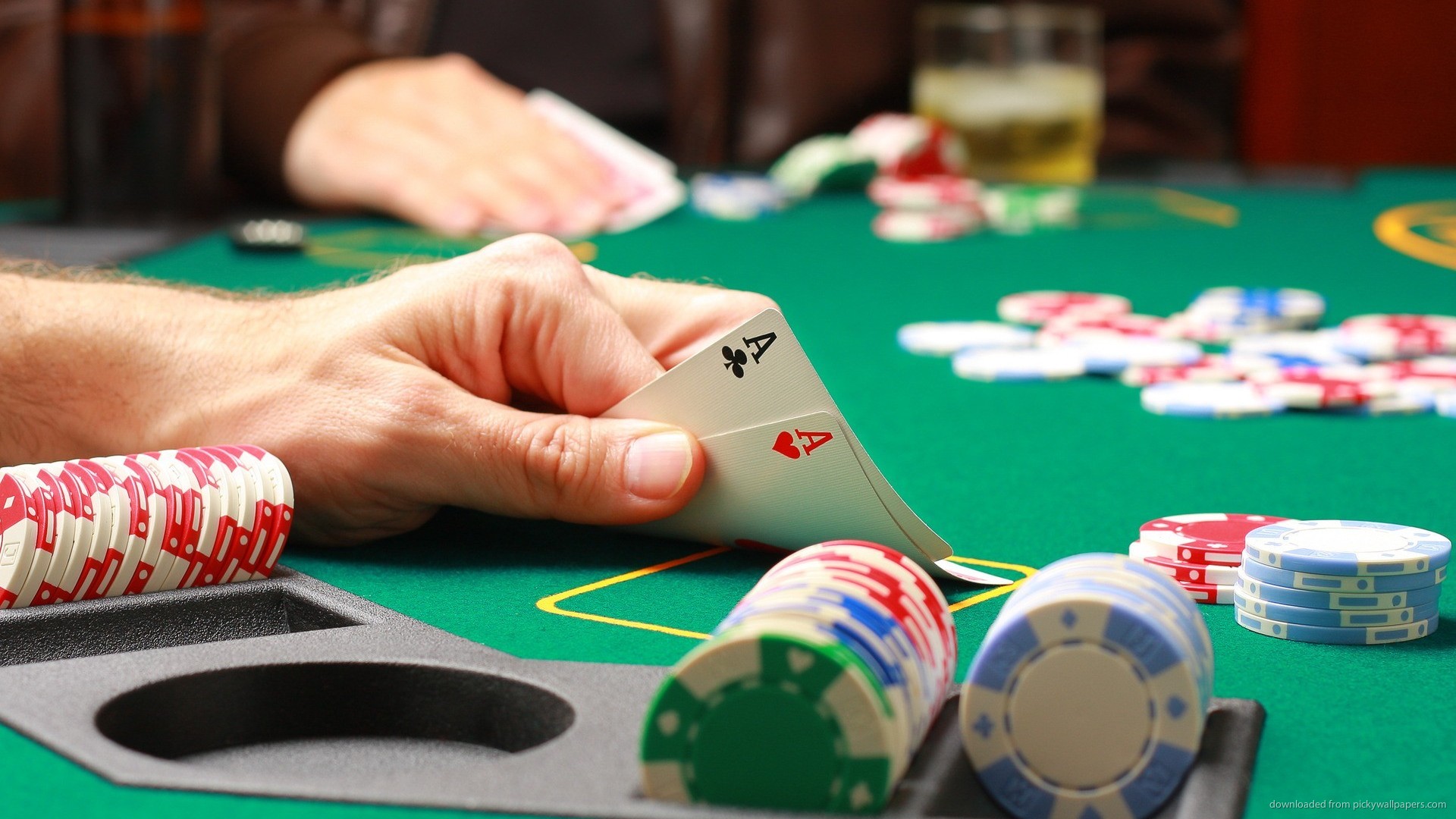30′ x30′ mural, painted by Agustin Zarate, to be unveiled outside The Village Idiot restaurant in Lexington June 29
Monthly Archives: June 2017
First Starter Gets It Done for Freshman Sire El Padrino
Pennsylvania freshman sire El Padrino’s first starter became his first winner June 8 at Delaware Park, where longshot Whereshetoldmetogo rallied in the stretch to win by 2 1/2 lengths.
Generazio Homebreds Back for Another Jaipur
After grabbing the top two positions in last year’s Jaipur Invitational Stakes (G3T), Patricia Generazio homebreds Pure Sensation and Disco Partner are back for another edition of the turf sprint June 10 at Belmont Park.
Recruiting Ready Steps Up in Woody Stephens
Sagamore Farm’s Recruiting Ready will try to extend his win streak to four June 10 in the $500,000 Woody Stephens Stakes (G2) at Belmont Park, but he’ll have to fend off a trio of last-out grade 3 winners if he wants to earn his own graded score.

Negreanu Loses Twice, WSOP Addresses Card-Marking Concerns, Colossal Run for Poker’s Newest Millionaire
Wednesday was an eventful day at the 2017 World Series of Poker. Daniel Negreanu dropped a pair of heads-up matches, the Colossus found its million-dollar winner, and WSOP officials explained […]
The post Negreanu Loses Twice, WSOP Addresses Card-Marking Concerns, Colossal Run for Poker’s Newest Millionaire appeared first on .
Ribchester Moves Into Top Three in World Rankings
While Arrogate, with a ranking of 134, and Winx (132) continue to maintain their top two positions in the Longines World’s Best Racehorse Rankings for 2017, Ribchester moved into the third spot at 124.
Another Classic, Another Shot for Lookin At Lee
Lookin At Lee will not be carrying a lunch pail during the Belmont Stakes presented by NYRA Bets (G1) June 10 at Belmont Park, but trainer Steve Asmussen knows his horse will bring that mental approach to the 1 1/2-mile classic.
Laurel Park Summer Meet Begins June 9
With an emphasis on racing over its world-class turf course, Laurel Park will look to maintain the momentum from a record-setting Preakness Meet at Pimlico Race Course at its 33-day summer stand starting Friday, June 9.

Denmark’s retail sports bettors cheaper or luckier than online
Denmark’s regulated online gambling market reported mixed results in the first quarter of 2017, which featured wild swings in sports betting revenue.
Figures released this week by the Spillemyndigheden regulatory agency showed Danish-licensed operators reporting overall sports betting revenue of DKK 517.2m (US $78m) in the three months ending March 31, down from DKK 565m in Q1 2016 and the lowest total since Q2 2015.
The sports betting revenue decline came despite betting stakes remaining relatively flat at DKK 5.3b. On a month-by-month basis, betting revenue swung from a 12-month high of DKK 223m in January to a 12-month low of DKK 137.6m in March.
Mobile channels dominate sports betting revenue, accounting for 52.2% of Q1’s revenue total versus 25.4% for desktop bets and 22.5% for retail wagering. However, land-based venues accounted for 54% of individual betting transactions, suggesting that land-based bettors place significantly smaller wagers – or are just savvier or luckier bettors – than their online counterparts.
Mor Spirit Can Become Top Miler With Met Mile Score
Michael Lund Petersen, a co-owner of the successful worldwide Pandora Jewelry company, hopes his Mor Spirit will become an unforgettable keepsake by continuing to win mid-distance races at the highest level.
Racing Loses One of its Greats: Holy Bull Dead at 26
Holy Bull was 1994 Horse of the Year and champion 3-year-old. “If you were putting together your fantasy horse stable for the last 25 years, you’d have to have Holy Bull in your top five,” Godolphin USA president Jimmy Bell.
Magic Millions Gold Coast Sale Concludes With Records
The 2017 Magic Millions National Sale on the Gold Coast concluded June 8 with records for the 15-day auction that consisted of weanlings, broodmares, yearlings, and racehorses.

DOJ busts Russian crime ring that hacked AC, Philly casino slots
The US Department of Justice has broken up a Russian-led criminal gang whose crimes included illegal poker games and hacking casino slot machines.
Late Wednesday, the US Attorney’s Office for the Southern District of New York announced multiple charges against 33 members of a gang with links to a Russian and Georgian “organized crime syndicate.” Most of the accused have been detained, although five defendants remain at large.
Among the accused is Razhden Shulaya, whom the DOJ identified as a ‘vor’, which literally translates as ‘thief’ but is understood to indicate a high-ranking ‘made’ member of a criminal gang who receives financial tribute from lower-ranking members of the same gang. The term has been loosely compared to the term ‘godfather’ in Sicilian mafia circles.
The ‘Shulaya Enterprise’ reportedly operated illegal poker businesses in Brighton Beach, while extorting gamblers who incurred debts via these illegal activities. The Enterprise is also accused of “efforts to defraud casinos in Atlantic City and Philadelphia by using electronic devices and computer servers to predict and exploit the behavior of electronic slot machines.”
Believe in Bertie Looks to Rebound in Mint Julep
Klein Racing’s homebred Believe in Bertie, first or second in 10 of 12 starts, tops the field of seven fillies and mares entered in the $100,000 Old Forester Mint Julep Handicap (G3T) June 10 at Churchill Downs.
Songbird Set to Make 2017 Debut in Ogden Phipps
Two-time champion filly Songbird is the 1-2 morning-line favorite for her 2017 debut in the $750,000 Ogden Phipps Stakes (G1) June 10 at Belmont Park.
Irish War Cry Takes First Spin Around Belmont Park
Newly minted Belmont Stakes Presented by NYRA Bets (G1) favorite Irish War Cry got his first look at the massive Belmont Park oval the morning of June 8, when he hit the main track for a 1 1/2-mile gallop with trainer Graham Motion keeping tabs.

Poker clubs to file fresh petitions before Gujarat High Court
The legal battle to clear the uncertainty over the legality of poker games in the Indian state of Gujarat is likely to be delayed following reports that the poker clubs have withdrawn their original petitions from the Gujarat High Court.
Several weeks ago, the Indian Poker Association (IPA) filed a plea asking the high court for “urgent adjudication” after Gujarat police took down three poker rooms in less than a month. In its petition, the association claimed that poker is a game of skill and playing the game “is an activity that is protected under the right to free trade and commerce, which is guaranteed under Article 19(1)(g) of the Constitution.”
However, GLaw.in’s Jay Sayta reported that IPA’s KN Suresh has decided to withdraw his original petition because “there is no longer any ground to proceed with a criminal application.” The original petition sought protection from the authorities’ “harassment of poker operators,” but the IPA said that no longer applied because the Ahmedabad police commissioner issued a notification on May 2 saying that poker is a game of chance and is not exempted under the Gujarat Prevention of Gambling Act.
IPA, along with six other poker clubs operating in Gujarat, believes that a fresh civil writ petition is the only way to challenge the police’s letter. According to the news outlet, the High Court has allowed the poker clubs to withdraw their criminal applications and file new petitions “to argue their contention that poker is a game of skill.”
Epicharis Does Not Train After Lameness Treatment
The status of Japanese contender Epicharis is in question for the June 10 Belmont Stakes Presented by NYRA Bets (G1) after the colt was treated with bute June 7 and did not go out to train June 8 at Belmont Park.

Asian Poker Tour announces APT Macau 2017 schedule
Through the years, the APT has visited Asia’s major gambling destination seven times bringing with them their signature structured tournaments. For the first time the APT has joined forces with the MBP group who are recognized for producing large scale poker events in Macau. Last year, the MPB opened their own poker room which has quickly become one of the most popular rooms in the area.
The APT Executive Director Lloyd Fontillas expressed, “We are very excited to return to Macau and host our next big event with Macau Billionaire Poker. Both the APT and MBP share the same goals of promoting and developing the sport by offering top quality events. For our upcoming APT Macau, players can expect nothing less than an intense schedule of highly crafted tournaments. We hope to see everyone come out and experience the fun and thrill that our event has to offer.”
The APT Macau 2017 will run for nine days featuring a HKD 19,800 buy-in Main Event, a Super High Rollers (special event), and 16 exciting side events which includes a HKD 33,000 buy-in High Rollers.
Here is a look at the highlights of the APT Macau 2017 schedule:

New Hampshire exempts bitcoin from money transmission regulations
After months of debate, a bill that exempts traders of digital currencies like bitcoin from New Hampshire’s money transmission regulations is now a law.
New Hampshire Gov. Chris Sununu signed House Bill 436 into law last June 2, more than a month after state senators passed the bill.
First introduced in January, HB436 seeks to create an exemption from money transmission requirements for “persons conducting business using transactions conducted in whole or in part in virtual currency,” which it defines as a “digital representation of value that can be digitally traded and functions as a medium of exchange, a unit of account, or a store of value but does not have legal tender status as recognized by the United States government.”
The bill enjoyed support from grassroots advocates, but also drew flak from state officials who blasted the proposal during public hearings. Despite this, HB436 cleared the House of Representatives by a 180-170 margin in March and passed the State Senate by a 13-10 vote in April.